How can I create Grid Table Visual in an IntelliFront BI Dashboard?
This article will help you to create a Grid Table Visual dashboard item to data. A Grid Table is ideal to show data in its raw format.
Dashboard - Grid Visual
When creating a dashboard item it is important to know what you want to display. We recommend having some questions in mind of what you want the dashboard to show before you start creating it.
The Dataset used in this dashboard is a sample of a Black Friday sales. The Dataset contains information about Age, Occupation, Gender, Marital Status, Purchased Items, Purchase Price, City of residence etc.
I would like to find out the following from the Dashboard:
- Who spends more on Black Friday, Men or Women?
- Does Marital Status have an effect on spending habits?
Below is an example of a Grid Table created based on the two questions above:
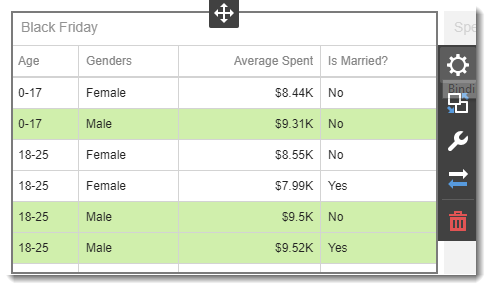
- To create this visual, begin by selecting Grid.
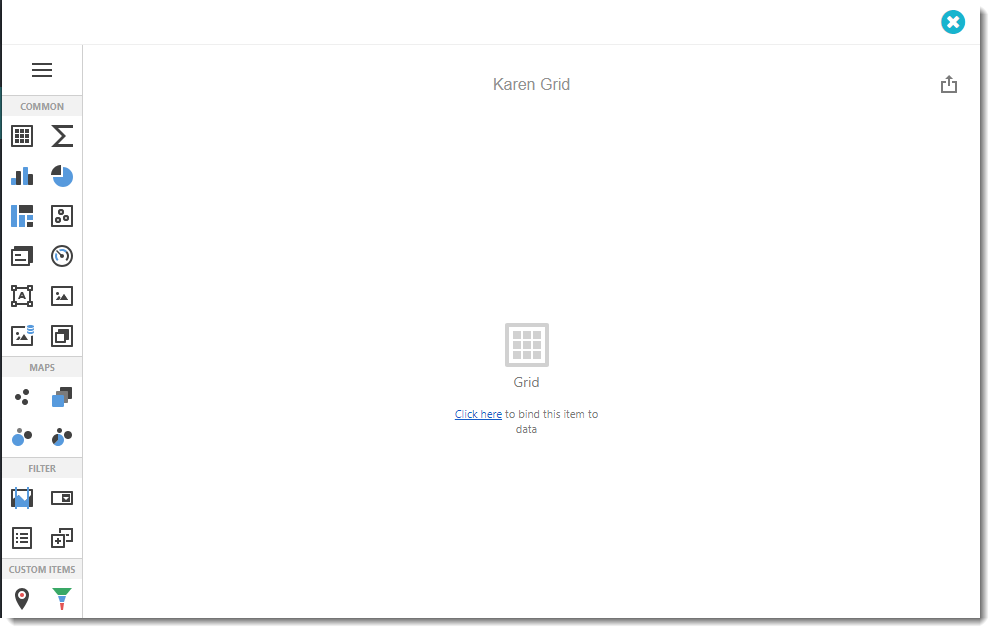
Binding Menu
- Use the Click here to bring up the Binding Menu. The Binding Menu allows you to create and modify the data selected for the dashboard.
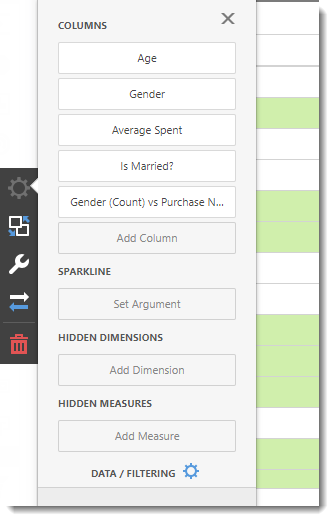
Columns
Note: You can now search data in the Grid feature by using new column filters.
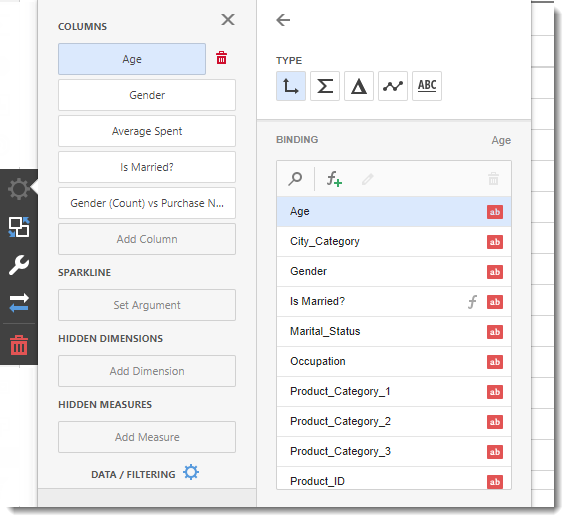
- Click Add Column.
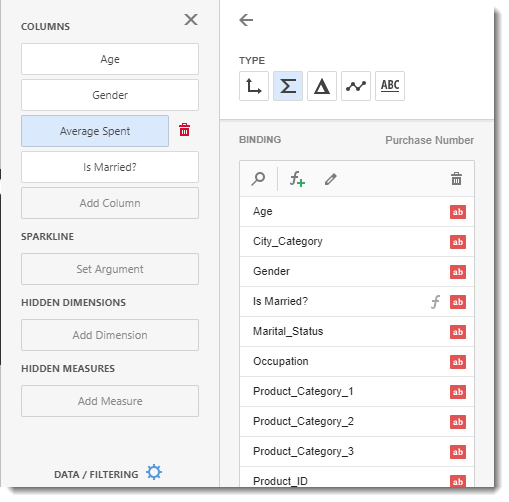
- Once you click Add column, select the required data in the Binding section.
Type
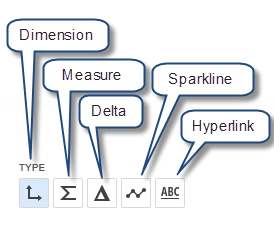
- In this section, you may select the types of column for the Grid dashboard item.
- Dimension: This column type allows you to provide categorical information.
- Measure: This column will display calculated data.
- Delta: This column type calculates will display a calculated summaries for two measures.
- Sparkline: This column type will displays the summary values changes over time.
- Hyperlink: This column will display hyperlinks in the Grid.
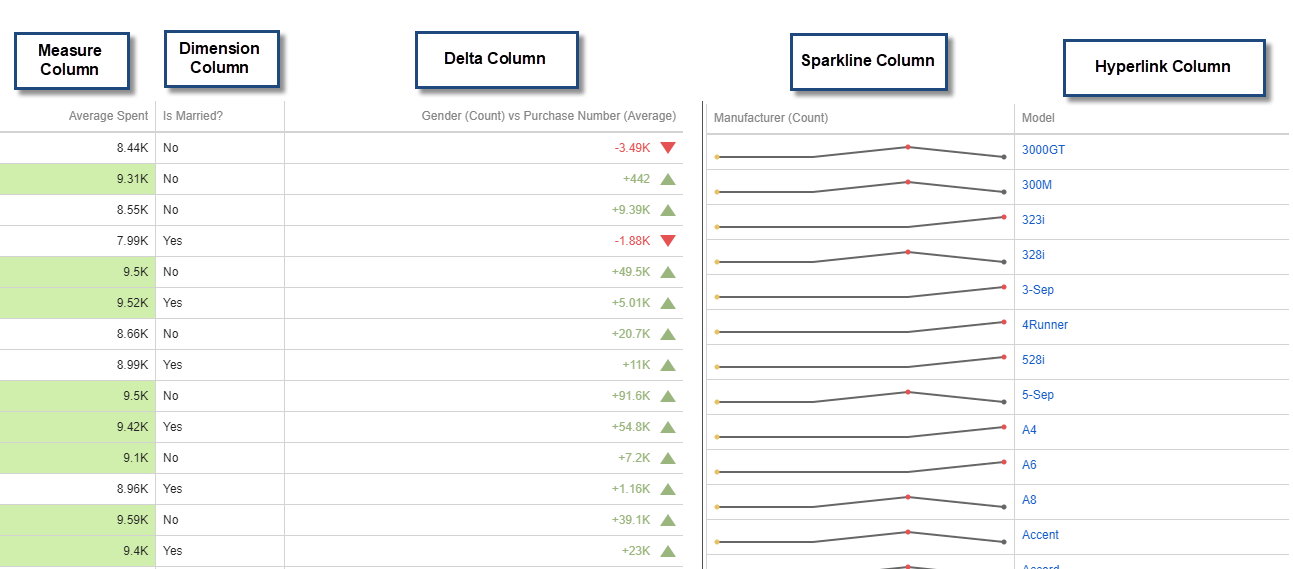
Binding
- Select the value for the information you are going to show.
For the example above I am going to show the Age.
- You may need to use a calculated field. To create a calculated field use the F+ button. You will need to use SQL Queries for this.
Please seek assistance from your IT department as we do not provide SQL Query support.
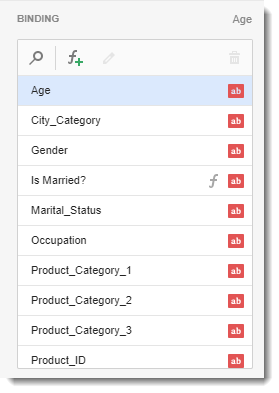
- In this section, you may select the required data source field and create SQL Server functions to customize the data.
Data Shaping
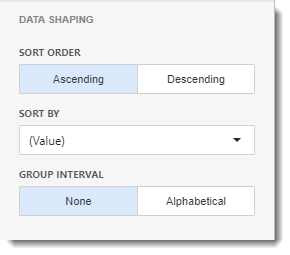
- In this section, you can change the sort order of the value.
- Sort Order: You can select Ascending or Descending sort order.
- Sort By: Select the measure you want to sort this data.
- Group Interval: You may sort group interval by Alphabetical order.
Options
- Caption: This is the heading for the selected column. It is best to caption the visual with a variation of the question asked at the beginning of creating the dashboard.
For Example; Back Friday.
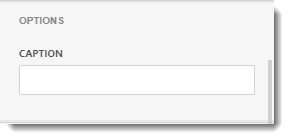
Column Width
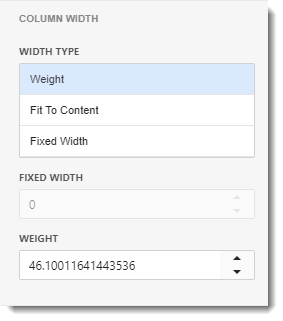
- You may edit the column width and weight.
Totals
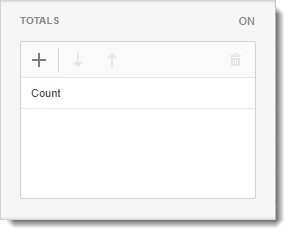
- In this section, you can add a summary value calculated against displayed values of an individual column, and to show the result under this column.
- Click on the (+) button to add the summaries values into the Total.
- It will appear on the bottom of the Grid.

Column Filter
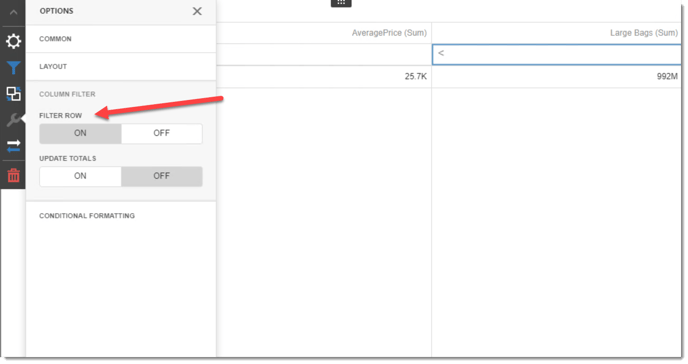
- In this section, you can now use the Column Filter feature by deciding if you want to filter the rows or if you want to update the totals.
Conditional Formatting
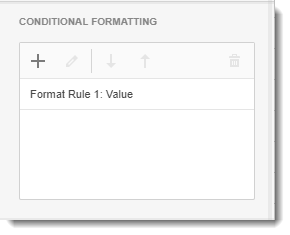
- In this section, allows you to highlight specific cells or entire rows by setting a rule.
- Click on (+) button to set a rule.
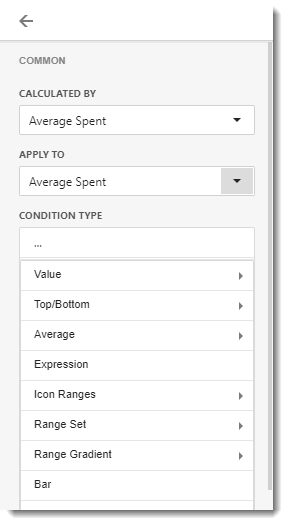
- Calculated by: Select the column you want to calculate the rule.
- Apply to: Select the column you would like to apply this new rule.
- Condition Type: Select the condition type in order to highlight the column.
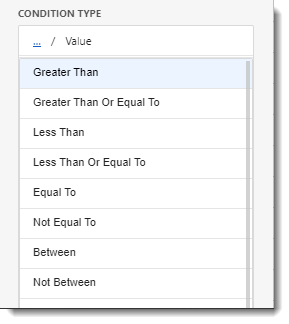
- Select the Style of the condition.
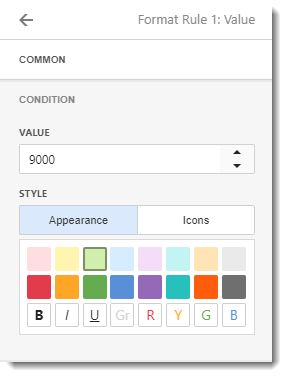
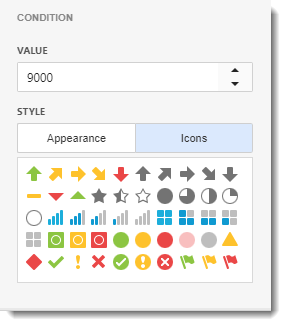
- After you select the condition type, write down the value you would like to highlight and select the style.
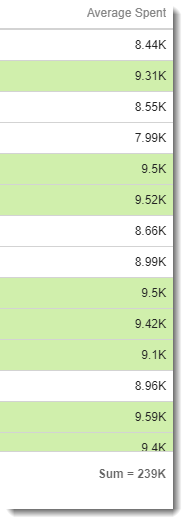
Calculations
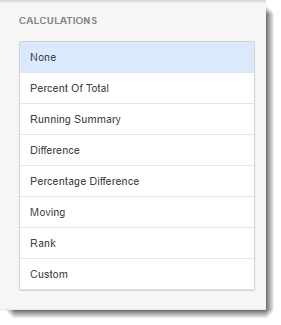
- In this section, it will automatically calculate the column by selecting one of the options.
Format
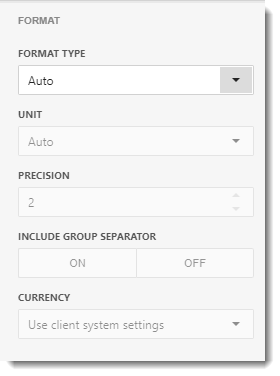
- In this section, you have the option to select the format type of the data from the drop-down menu.
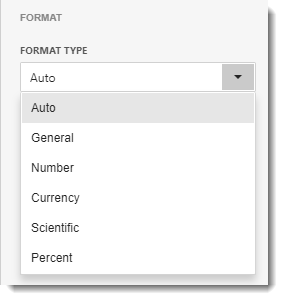
Top N
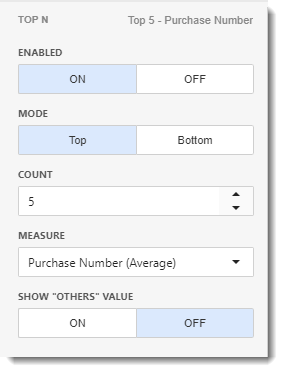
- In this section, you can customize the display number of values that correspond to the highest or lowest values of a particular measure.
- Enable this option by clicking ON.
- Mode: Specifies whether top or bottom values should be displayed.
- Count: The number of Values you want to display.
- Measure: The measure selected which the top or bottom values will be determined.
- Show "Others" Value: If enabled, all values that are not shown in the top/bottom ones will be displayed in the "Others" value.
Delta Options
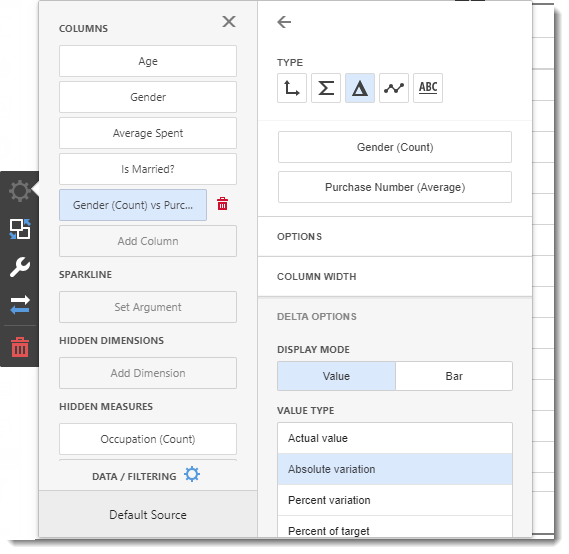
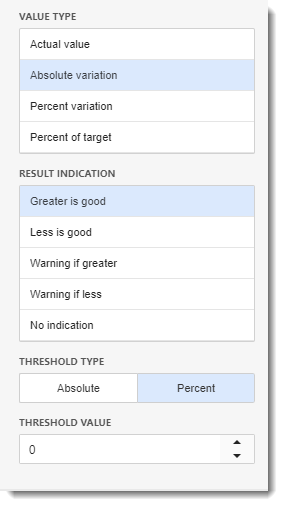
- If you have a delta column type, this options will appear.
- Display Mode: You can change the delta mode with Value or Bar.
Value
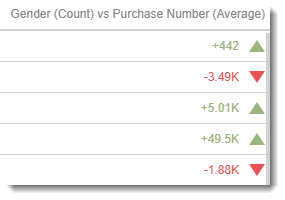
Bar
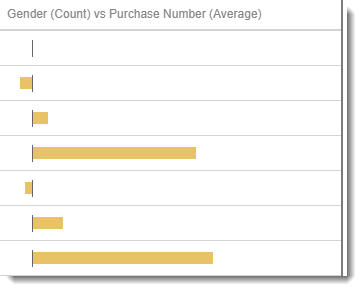
- Value Type: You can select which values should be displayed in the delta column.
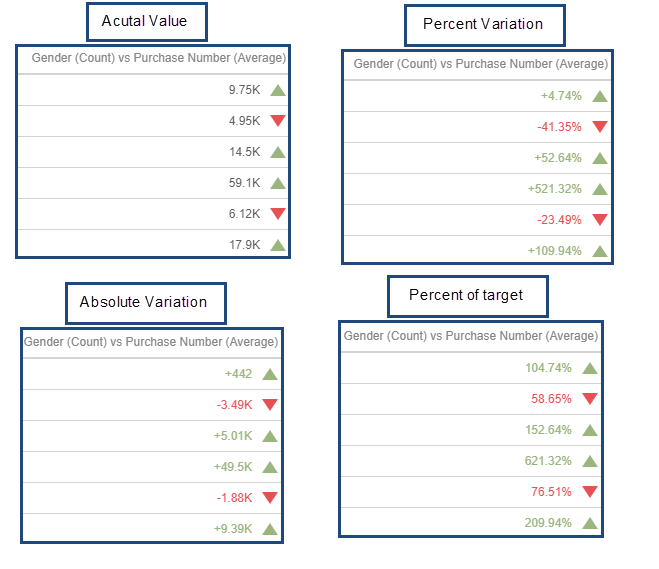
- Result Indication: You can select the result type of the delta column.
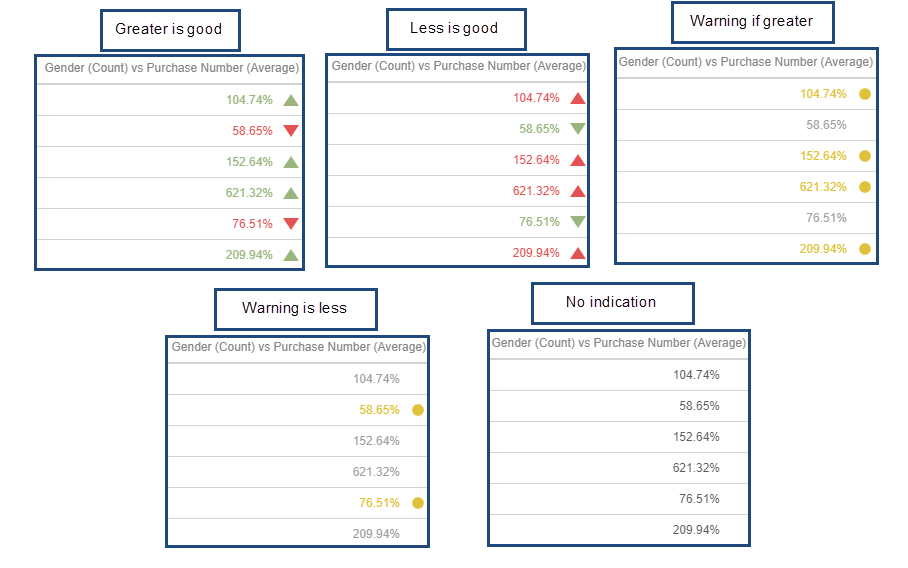
- Threshold type: The threshold is the neutral value of the delta column. You can set it up by Absolute or Percent value.
- Threshold Value: Set up the neutral value here.
Sparkline
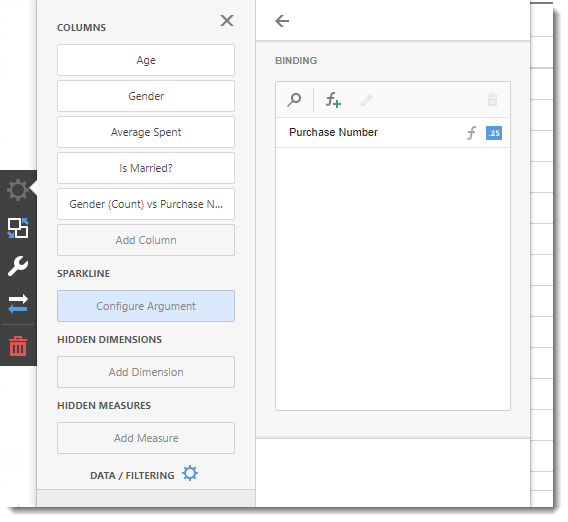
- This is where the second variable for the Sparkline column shows.
- Select the value for the information you are going to show.
- You may need to use a calculated field. To create a calculated field use the F+ button. You will need to use SQL Queries for this.
Please seek assistance from your IT department as we do not provide SQL Query support.
Hidden Dimensions/Hidden Measures
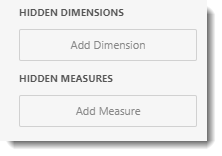
- This section is used to utilize a field without displaying in the dashboard item. Adding the Hidden dimension or measure, you can sort any values in the data by that specific dimension/measure.
- This section is to sort or filter the visual dashboard in order to get more detailed analysis.
- You can use Hidden Dimensions/ Hidden Measures with the following sections:
- Data/Filtering
- Data Shaping
- Common
- Top N
In this example, we want to sort the individuals by their occupation.
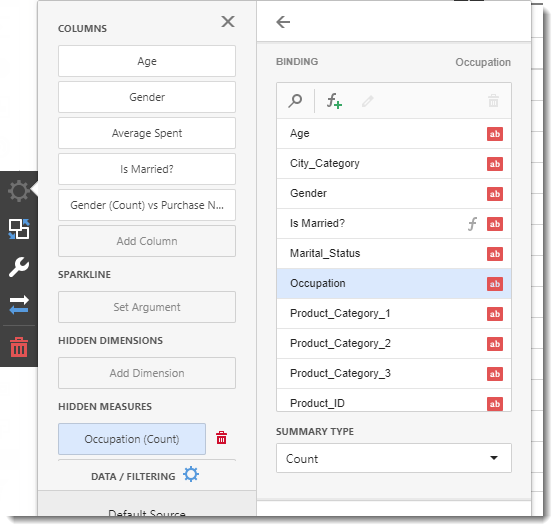
- After the data is added in the Hidden Measure, select the argument and/or values you want to filter.
In this case, I want to sort Is Married? by Occupation. Select Columns and select Is Married? and click Data Shaping. In Data Shaping, go to the Sort By section and select Occupation.
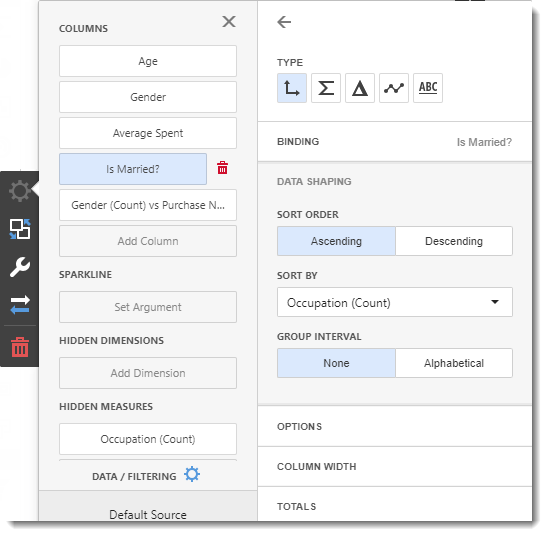
Interactivity Menu
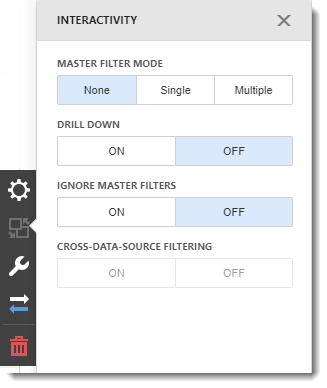
- The interactivity features enables interaction between several variable in the Grid.
Master Filter Mode

This mode allows you to use any data aware item ad a filter for other dashboard items.
- None: Disables master filtering
- Single: Allows you to select only one element in the Master Filter item. When this mode is enabled, the default selection will be set to a Master Filter element. You can change this selection, but cannot clear it.

- Multiple: Allows you to select multiple elements in the Master Filter item. To reset filtering, use the Reset Multiple Selections button in the Grid.
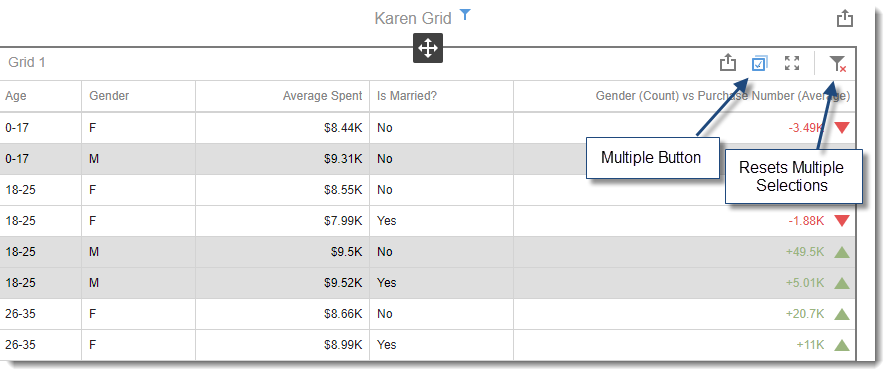
Drill Down

- This mode allows you to change the detail level of the data displayed. Drill-Down enables users to drill down to display detail data, or drill up to view more general information.
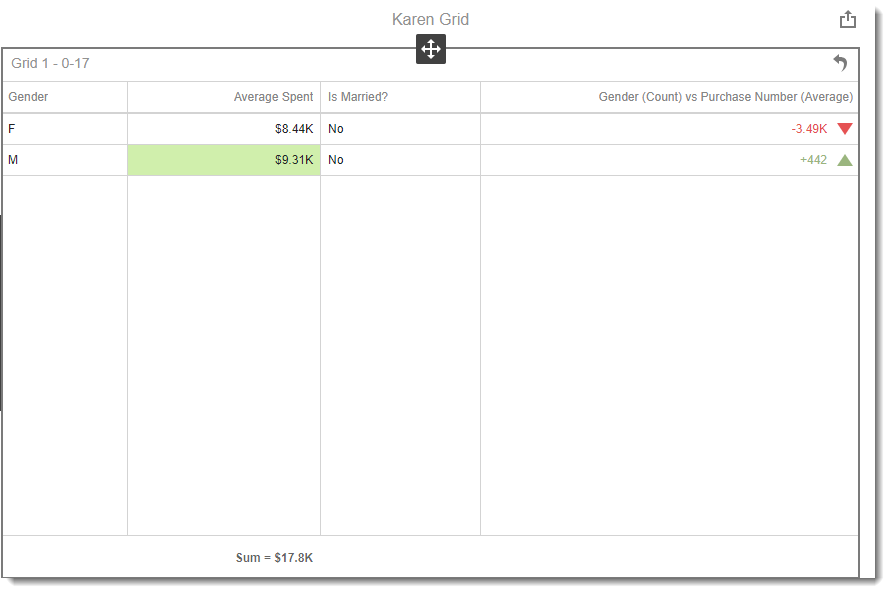
Ignore Master Filters

- You have the option to enable or disable Master Filters.
Cross-Data-Source Filtering
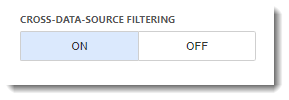
- In this mode, when different items in a dashboard are bound to different data sources, you can specify that a particular Master Filter should be applied across data sources. This means that it will apply filtering to fields with matching names in all data sources.
Options Menu
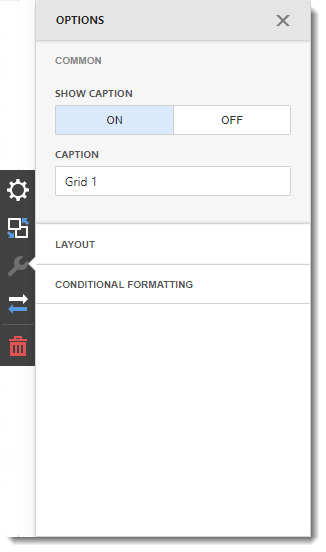
- In this section, contains specific options and settings related to the dashboard item.
Common
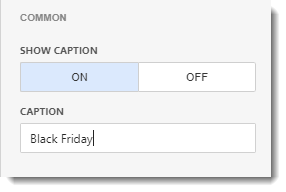
- Caption: This is the heading for the visual. It is best to caption the visual with a variation of the question asked at the beginning of creating the dashboard.
For Example; Black Friday
Layout
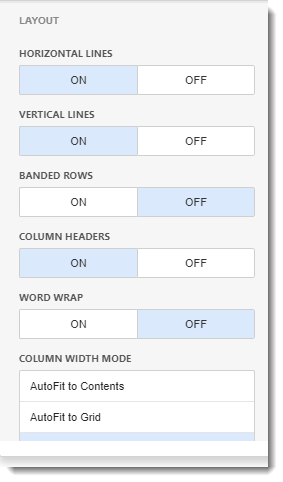
- In this section, you can manage the width of grid columns, specify the visibility of column headers, enable cell merging, etc.
- Horizontal Lines and Vertical Lines: You can enable or disable the grid line visibility.
- Banded Rows: You can set a background color in odd and even rows differently by clicking ON.
- Column Headers: You can enable or disable the column headers.
- Word Wrap: If the column headers are long, you can enable word wrap in order to fit the column header in the same size of the cell.
- Column Width Mode: You can set up the column width mode here.
Conditional Formatting

- In this section, allows you to highlight specific cells or entire rows by setting a rule.
- Click on (+) button to set a rule.

- Calculated by: Select the column you want to calculate the rule.
- Apply to: Select the column you would like to apply this new rule.
- Condition Type: Select the condition type in order to highlight the column.



- After you select the condition type, write down the value you would like to highlight and select the style.

Convert To Menu
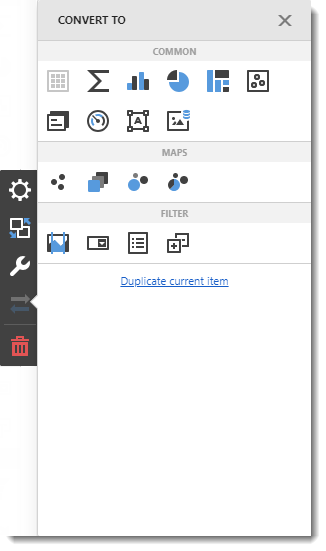
- In this section, you have the option to convert or duplicate the current dashboard item.
Remove Button

- Click on the remove button to delete the current dashboard item.